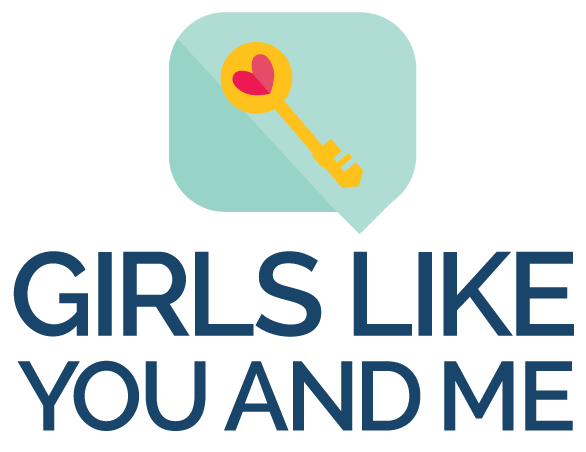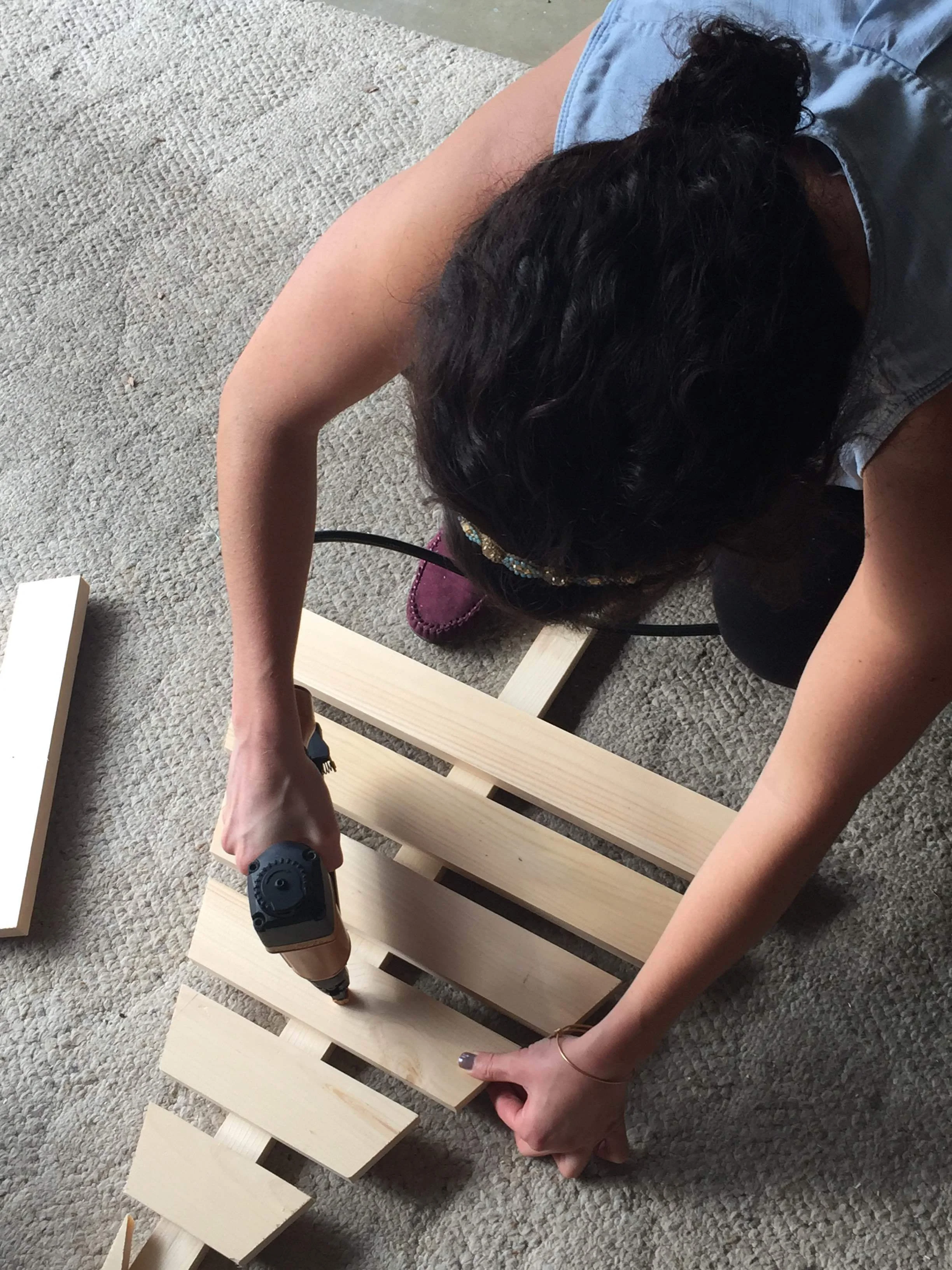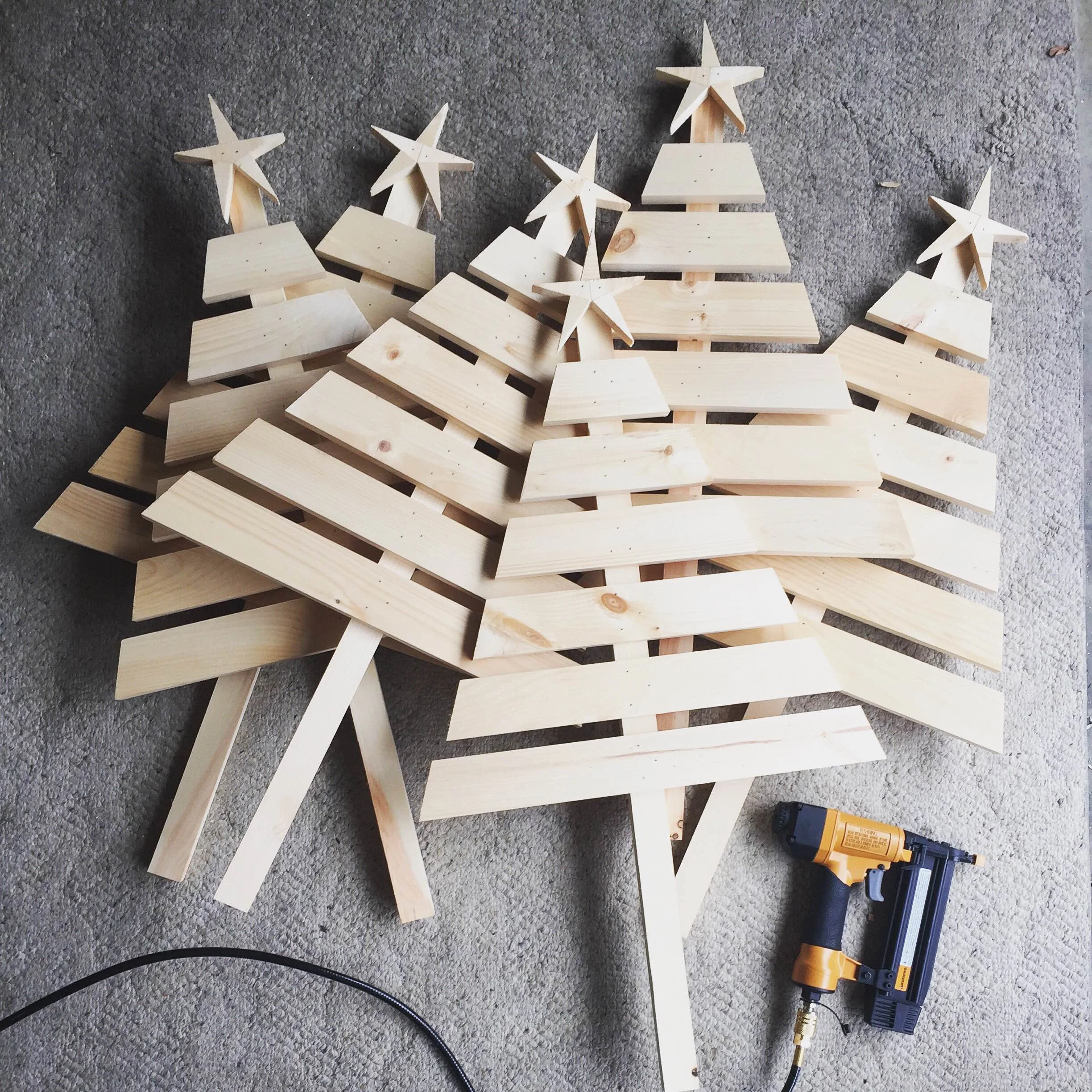Allison Bhatta uses her creative energy to make ads
Allison Bhatta is the senior art director at an advertising agency, where she uses her design skills to solve client problems. She talked to us about her "compulsive maker ways," her practical approach to figuring out what to do with her life, going from full-time work to freelance and back again, and how earning "half a master's" degree put her on her way in the advertising world.
Allison had the creative spirit from a young age.
FAST FACTS ABOUT Allison
Where she’s from: suburban Richmond, Virginia
Grew up with: mom and dad, older brother and sister
Education: Bachelor’s degree in graphic design from Virginia Tech and half a master's in art direction from Virginia Commonwealth University
Where she lives now: Kansas City, Missouri
Growing up she wanted to be: a grown up
Now she’s: senior art director at an advertising agency
Tell us about yourself growing up!
I feel like I was the kid that wanted to hurry up and be a grown up I kept myself busy. I like to have things planned out. I did school and babysat and hung out with friends and worked hard. I was an officer my senior year. I did a lot of mini event planning just to keep our class all together. I've always been a creative-brained person. I would be making stuff and figuring out how things worked, decorating stuff. I did a lot of scrapbooking. I was also a big homebody, and my parents and I are pretty close. I'm the youngest, so we did a decent amount of hanging out once my siblings were in college. I was that responsible kid.
Who were the adults that were important to you when you were growing up?
Definitely my parents. I still am great friends with them. They've always been super encouraging in letting all of us my brother and sister included make our own decisions. They're there if you need anything, but they really do give me the opportunity to make all of my decisions on my own. If I ask for advice, they'll give it to me, but they always respect my decisions and let me be my own person. [My grandfather] was always really supportive of education. He was a big proponent of getting a good education and making sure you're setting yourself up for success.
my senior year I chose a computer graphics class and a business marketing class. I said, “I'm going to see which one I really like better, and maybe that'll help me decide what I want to do down the road.”
How did you feel about school?
I was a middle of the road student. I definitely worked hard, but I also used school as an experience builder. Going into my senior year and picking electives, I was very practical and I chose to do a computer graphics class, which was introduction to Photoshop and a little more design-heavy, and then I also chose to do a business marketing class. I was interested in figuring out what I really wanted to do early on, and said, “I'm going to see which one I really like better, and maybe that'll help me decide what I want to do down the road.”
Were you always interested in art?
I was a creative free spirit. I definitely loved making little doodles with chalk in the driveway or painting, but I wasn't someone that would sit down and draw a portrait of someone. I'd make scrapbooks and slideshows and take pictures-- creativity as an outlet versus fine art. I was introduced to Photoshop in high school. I was interested in photography, and I said, “okay, well, I can take pictures and I can use Photoshop to make things with them.”
What did you find out from your senior electives?
I definitely preferred being in more of a creative environment, doing design, versus the business side of things. I initially went to college in a business-undecided major, and ended up switching into the design program the end of my freshman year. I ended up having a fifth year of college. I took the business classes I had started and turned that into a minor and did design as my major. It was a lot of growing and figuring out what I wanted to do with my life. I took everything seriously and worked hard, and I was good student.
I had an intro to advertising class within my major, and we essentially came up with print ad ideas like you'd find in a magazine. That opened my eyes to the opportunities in design. I thought, “this is going to be my way to make people's lives better by communicating what these products can do to help their lives.”
What did you do after undergrad?
I went straight from undergrad to graduate school. My undergrad degree is in graphic design. Right out of school, I probably could've worked for a company making brochures and printed pieces. I was interested in reaching a broader audience. I grew up in a town that has the number one advertising school in it at VCU [Virginia Commonwealth University]. When I read about art direction, I thought, “yeah, that's what I want to do.” I could take my skills in design and use those to reach a broader audience through advertising in TV commercials, social media, which was just picking up, print ads. I felt like I needed to further my skills to be successful as a designer out in the real world.
Why did you leave your master's program?
In between my two years of grad school, I did an internship at a company out in Colorado. It was a really good internship experience, and I loved the people I was working with and the accounts that I was working on. They offered me a job, and initially I turned it down because I wanted to finish my master's. Then I realized that the whole point of going to grad school for advertising was to get a job in advertising, and the opportunity fell into place a little earlier than I was expecting. I ended up leaving school and taking the full-time job. It's one of my favorite things to say that I got half my master's.
I wouldn't have gotten that internship without my grad school experience. My first year of real world work was like my second year of grad school.
What do you do for your job on a day-to-day basis or project-to-project as a senior art director?
Normally, a client that the agency represents will ask for some sort of project. There's a strategy department that’ll come up with a little bit of direction on how we're going to find the best solution. Then, I work closely with a writer to come up with ideas that solve this problem. From there we go back and forth with creative directors, art directors and writers at a higher level, and narrow down ideas to be developed into ideas that we present to the client.
When you see a TV commercial or a social media post, it's been worked on for at least a month or two. I worked on a holiday campaign in 2014 that we actually started in March.
Do you specialize in a particular product or market?
I have always been assigned to a group of clients. I've done some TV commercials, but for the most part I've always worked in social media. We’d be presented a project that says hey, we need some social posts to address this or encourage people to buy our new shapes. We come up with content that [a client’s] Facebook or Twitter or Instagram posts on a daily basis to keep a conversation going with their fans. We'll do projects for a special time. There's a lot of interaction with what's going on in the world, holidays, time of the year, depending on what these brands stand for.
When you see a TV commercial or a social media post, it's been worked on for at least a month or two in advance. I worked on a holiday campaign in 2014 that we actually started in March. All through the summer, I remember listening to Christmas carols to try to get in the holiday spirit to be able to come up with ideas, even though it was 95 degrees outside. It makes it fun.
Do you interact with clients much directly?
It depends on the agency that you work at. I've worked at two pretty large agencies that have about 200, 300 plus people. In that setting, I don't necessarily have as much face time with our direct clients because we'll have an account team person from the agency side. But I also worked at a smaller agency that had about 35 people, and I did have more face time with the clients. A lot of our communication happens over the phone or over a video chat. It's rare that the clients you're working with are in the same place as you. If we have an event or if we're out bringing an idea to life, we'll have the clients there with us, but on a daily basis it's normally email, phone.
On going freelance: "I still did almost exactly what I would have done at an agency, but I was able to jump around to different companies. I was everything from the CEO to the intern of my own company."
You worked at an agency and then you were freelance for a while, and now you work at another agency. Can you talk a little bit about going freelance?
I actually became a freelancer due to a layoff. It pushed me to take that leap and experience the unknown and prove to myself that I could do it. When I told my parents “I'm going to work for myself for a little bit,” I saw it as an opportunity to knock a few creative projects off my to-do list. From their perspective, it was something that was really unfamiliar, and they were unsure about it.
I still did almost exactly what I would have done at an agency, but I was able to jump around to different companies. I was everything from the CEO to the intern of my own company. You have to be a decent time manager. There is a whole financial component of, when is this invoice going to be paid. It's interesting to grow as a businesswoman.
I didn't have a paycheck every two weeks. I had to figure out, if I work this job, that'll bring in about this income, so that makes me go this far in the month, and then I could take on smaller projects to fill in and bigger projects if I needed to and adjust my schedule. I did a decent amount of work. It never felt like the daily grind of going to an office, because even in the days that I didn't necessarily have something in an office. I'd be working on creating logos, like for Girls Like You and Me, or doing other little projects here and there. It never felt like I was burning the candle at both ends. There was something calming about knowing that I controlled my schedule and my time. I became a lot better at respecting my own time.
I was able to work with a lot of people I had never met before, like you. The network within advertising is pretty small. A lot of people I had worked with previously at agencies, if they heard hey, somebody needs some help, they would pass my name along. Being a freelancer, you also have to feel comfortable reaching out to people you don't know and having a good network. That definitely helped in my success there, but with LinkedIn and all those networking sites, it's a little bit easier to stay connected than previous generations. When I freelanced, I started to realize what I did and didn't like about the more corporate world.
What drew you back to a full-time job?
The things that I learned while I was freelancing have made me a better employee in a full-time setting. One of my reasons going back to a full-time setting was I started to really miss the collaboration and being around people. It was that relationship-building and working with a consistent team of people that I missed.
Allison likes to keep busy outside of work, whether creating things, or enjoying the outdoors.
You said that you have gotten better at creating boundaries between your work and the rest of your life. What fills your time outside of work?
I still stay really busy. I design wedding invitations on the side. I'm still doing some branding and website stuff. Once I finish those tasks, I've been trying for a while to get the things that I've learned along the way, between getting laid off a couple times and changing from a big company to a small company, freelancing, moving, into words and on a blog.
I default into my compulsive maker ways. I am always trying to come up with new ideas. Most of the time I'm making some sort of gift for someone. I make a lot of cards. I've been collecting old furniture and refinishing it. It's hard to be creative after you're creative all day, but sometimes it's easier than others. Sometimes I just want to not do anything and lay on the couch. I don't do that very often, so when I really feel like doing that, I'm like okay, do it.
knowing what makes you, you, and trying to figure out how that can translate into a job is going to make you happier than what someone else thinks you should do.
What would you tell somebody who was a kid like you, growing up?
My grandfather told me that the only way to be successful in life was to be an econ major. I took that to heart, but at the end of the day, I don't want work to feel like this thing that I hate all the time. I want to be able to find something that really makes me excited and happy. I would encourage people to really pay attention to what they really love.
Listening to your heart and knowing what makes you, you, and trying to figure out how that can translate into a job is obviously going to make you happier than what someone else thinks you should do. I'd say also not to be afraid of failure. I have always tried to treat any experience that I've had as like a learning experience, and then it's a little less scary. In advertising a lot depends on clients, and both times that I got laid off were directly related to a client leaving an agency. It wasn't technically anything I did wrong. A lot of people that aren't familiar with that see it as a failure, like I always thought of it as my opportunity to try something new.
It's okay to jump around. Your first job doesn't have to be your dream job. Acknowledging what you want is great, but if you start a job and realize six months down the road that it's not the perfect fit, knowing and accepting you are ready for something else is totally fine and okay. You don't have to stay in one job forever and be miserable. I think changing jobs and experiencing other cultures can be really good. I definitely value the experience of being able to experience a big company, a small company, working completely for myself.
What would you tell somebody who wants to be in the creative side of advertising?
Start having an opinion about what you do and don't like, as far as creative work. There's not necessarily a right or wrong answer. It's more about finding the best solution. There's so many different ways to solve a creative problem that you have to have an interesting perspective and know why you think this is the best way and present it that way.
Follow people that you think are doing great work. On social media, it's so easy to be connected with people. Also, you don't have to go to an advertising grad school to get into the industry. It was a good path for me, but it isn't something that you necessarily have to have formal training in, because it's all about perspective and how you can interpret something to make sense in a particular medium.
I don't think I'll ever run out of things that I want to try or make or do.
How does your life today compare to what you imagined your life would be like when you were in high school?
Oh man. I wanted to be a grown up. I just wanted to be able to support myself and be a functioning adult in society and be happy. It's not anything like I imagined, but I've learned a ton, which is one of my favorite things. I definitely can support myself. I still go home and see my family. I don't think I'll ever run out of things that I want to try or make or do, so I think my “keep yourself busy” mantra will be with me for a long time.
Somebody told me the other day that their dream job doesn't exist yet. With the way technology's changing, it's highly possible new things will come along, and who knows what other jobs are going to be available in five years that could be really interesting, and we just never realized that's what we really wanted to do.
This interview has been edited and condensed.
Check out books Allison loves and find out more about her!





